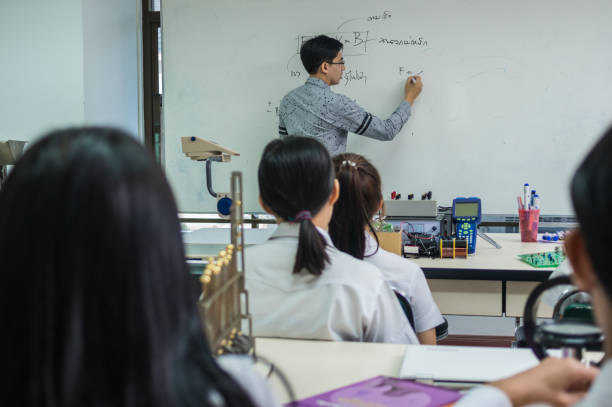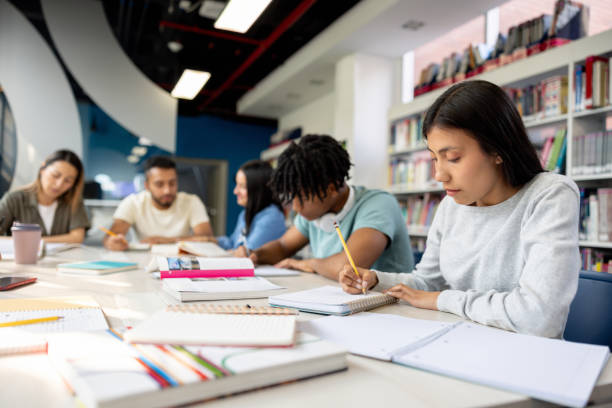The O Level Physics examination is a turning point for many students in Singapore. For those eyeing the JC Science stream, success in this subject opens a vital door. Physics demands clear reasoning, accurate application of concepts, and strong mathematical grounding. The jump from secondary to junior college can feel steep. That is where O level physics tuition offers support, structure, and clarity.
Students who aim to pursue Physics at the JC level often need deeper understanding and stronger problem-solving skills. By focusing on key principles and honing question-handling techniques, tuition builds the bridge between secondary school and JC expectations.
Why Physics Forms the Backbone of Science Education?
Physics explains how the world works, from falling objects to electric circuits. It forms the base for many science subjects in JC, including Chemistry, Biology, and Mathematics.
In JC, physics becomes broader and more technical. It stretches students to think abstractly and apply models to new settings. Without a solid foundation at the O Level, students struggle to keep pace.
Tuition at the O Level equips students with core skills that serve them in JC:
- Analysing questions methodically
- Drawing links between theory and real-world examples
- Applying formulas with accuracy
This preparation sets the tone for what follows in A Level science.
The Gap Between O Level and JC Physics
Moving from O Level Physics to JC Physics involves more than handling longer questions. Students must adjust their mindset. In JC, questions require:
- Abstract reasoning
- Understanding of calculus-based derivations
- Application across varied contexts
Many students experience a performance dip in their first term at JC. This gap stems not from laziness but from an abrupt change in depth and speed. JC physics tuition addresses this transition early by introducing concepts that will appear at the next level.
Core Challenges Faced by Students
Physics presents unique hurdles for different learners. Some students grasp concepts but falter when faced with multi-step calculations. Others freeze when questions are reworded or set in unfamiliar scenarios.
Key areas of difficulty include:
- Vector analysis
- Kinematics and dynamics
- Electrical circuits
- Thermal physics
Tuition allows time to revisit these challenging areas. Tutors explain ideas in different ways and offer plenty of question practice. Repetition, when guided properly, reinforces memory and builds confidence.
Building Conceptual Understanding, Not Memorisation
Physics does not reward rote learning. The subject demands flexible thinking. Examiners test not how much students remember, but how well they apply ideas.
O level physics tuition for JC science stream aspirants often includes visual demonstrations, practical examples, and structured summaries. These tools make abstract laws easier to digest. When students truly understand the principles, they begin to explain, not just recall.
Understanding removes fear. When students no longer guess, they start to predict answers based on sound reasoning. That shift from memorisation to mastery makes all the difference.
Techniques That Improve Exam Performance
Good physics tuition trains students to approach every question with a method. That method includes:
- Reading carefully — identifying what the question asks.
- Drawing diagrams — simplifying the scenario.
- Listing knowns and unknowns — clarifying what’s given.
- Choosing correct formulas — not relying on instinct.
- Working step-by-step — avoiding careless errors.
These habits turn into exam strategies over time. When stress rises in the exam hall, strategy anchors performance.
Understanding the Assessment Format
The O Level Physics paper includes structured and free-response questions. Many students fear the longer questions because they require deeper explanations.
Here is a quick comparison of the two formats:
|
Component Type |
Key Skills Needed |
Common Pitfalls |
|
Structured |
Recall, brief calculation |
Skipping key terms |
|
Free Response |
Multi-step reasoning, clarity |
Missing links between steps |
Tuition builds familiarity with both types. Students learn how to craft answers that gain full marks—not partial credit. Pacing practice also ensures they finish on time.
How Tuition Builds Confidence?
Confidence grows when students feel supported and equipped. Tuition removes the trial-and-error approach often seen in self-study. It replaces guesswork with structure.
In a tuition setting, students can ask questions they might hesitate to ask in school. They receive feedback tailored to their needs. Over time, they stop dreading Physics sessions and start looking forward to mastering new skills.
This shift was reflected in classroom participation, homework quality, and eventually, exam results.
Importance of a Strong Tutor-Student Relationship
Good tutors teach content. Great tutors unlock potential. A strong tutor-student bond helps students open up about what they find hard. It also helps the tutor adjust teaching pace and style to fit the student.
Qualities that matter in a Physics tutor include:
- Clarity in explanation
- Patience in correction
- Consistency in feedback
- Flexibility in method
Whether in a group setting or one-to-one, the relationship matters. Students learn best when they feel safe, heard, and respected.
Supporting Independent Learning Habits
While tuition provides guidance, it should also build independence. Students cannot rely on tutors forever. They must learn to self-check, reflect, and refine.
Quality tuition does the following:
- Models thinking aloud
- Encourages journaling of mistakes
- Promotes regular review of weak areas
These habits pay off in JC, where self-study forms a big part of success. By nurturing discipline now, students build the backbone they will rely on later.
Choosing the Right Tuition Programme
Not all tuition fits all learners. Some students need structure, others need flexibility. Some thrive in group energy, while others prefer quiet focus.
Here are some factors to consider:
- Class size and attention given
- Tutor’s background in Physics
- Frequency of lessons
- Feedback method (written or verbal)
Speak to the tutor. Ask how lessons support students who aim to enter the JC Science stream. Look for experience guiding students through this pathway.
Linking O Level Skills with JC Demands
Some O Level Physics topics expand directly into A Level topics. Understanding them deeply now saves stress later. Here are a few such links:
|
O Level Topic |
Related JC Expansion |
|
Kinematics |
Motion in two dimensions |
|
Forces and Energy |
Work, energy, and power |
|
Electricity |
Alternating current, EMF |
|
Waves |
Superposition, interference |
A good tutor connects current lessons with future use. Students then see the subject not as a series of topics but as a growing story.
Balancing School and Tuition
Time management matters during O Level preparation. Students juggle multiple subjects, CCAs, and family commitments. Tuition must fit into that mix without causing burnout.
The best way to balance:
- Choose tuition that complements school timing
- Avoid overloading with back-to-back sessions
- Use tuition time for deep work, not repetition
Quality over quantity ensures the student remains engaged and healthy. Learning should feel like growth, not punishment.
Final Preparation
As the exams are near, revision becomes crucial. Tuition offers focused reviews, targeted worksheets, and timed mock exams. A smart revision plan covers:
- Regular short reviews
- Practice past year’s questions
- Analysis of mistakes
- Review of concepts applied across topics
Tuition can also help students spot common traps set by examiners. Knowing these improves response accuracy and saves time.
Final Thoughts
O level physics tuition plays a vital role for students preparing to enter the JC Science stream. It not only supports academic growth but also builds character traits like perseverance, curiosity, and self-discipline.
Students who take time to understand, not memorise, stand a better chance at success. With strong tuition, they walk into their Physics paper with a calm mind, ready hands, and the clarity to tackle any question.






